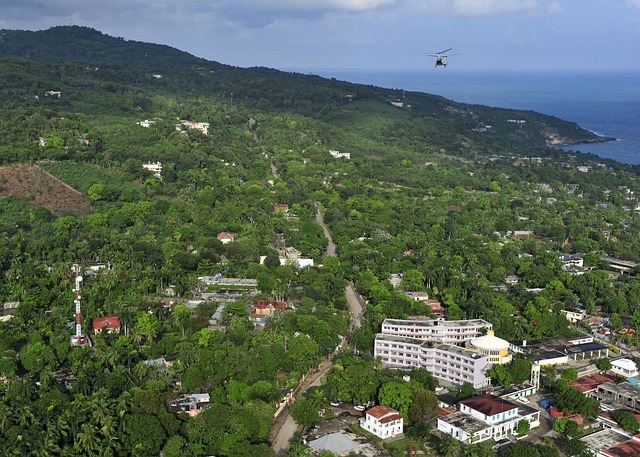Haitian Voodoo, also known as Vodou, is a syncretic religion that blends elements of African religions with Catholicism. One of the most important figures in Haitian Voodoo is the Houngan, or Voodoo priest, who plays a crucial role in leading ceremonies, performing rituals, and connecting with the spirit world. In this article, we will take a closer look at the rituals and practices of Haitian Voodoo priests, exploring their role in the community and the traditions they uphold.
The Role of the Houngan
The Houngan is a highly respected and revered figure in Haitian Voodoo, serving as a spiritual leader, healer, and advisor to the community. The title of Houngan is typically passed down through generations within a family or chosen by the spirits themselves. The Houngan is believed to have a special connection to the spirit world and possesses the knowledge and skills to communicate with the loa, the powerful deities and spirits of Voodoo.
Rituals and Ceremonies
Rituals and ceremonies play a central role in Haitian Voodoo, serving as a way to connect with the spirit world, seek guidance, and honor the loa. These rituals often involve music, dance, chanting, and offerings such as food, rum, and tobacco. The Houngan leads these ceremonies, using his knowledge of the spirits and traditions to ensure the proper protocols are followed.
One of the most important rituals in Haitian Voodoo is the ceremony of the sevis loa, or serving the spirits. During this ceremony, the Houngan calls upon specific loa to seek their guidance and blessings. The loa are believed to possess unique powers and personalities, and the Houngan must know how to properly honor and communicate with each one.
Another important ceremony is the initiation of new practitioners into the Voodoo tradition. This process involves a series of rites and rituals that mark the individual’s dedication to the religion and their commitment to serving the spirits. The Houngan plays a vital role in guiding and overseeing these initiations, ensuring that the new practitioners are properly trained and prepared for their role.
Healing and Divination
Haitian Voodoo priests are also known for their healing abilities and skills in divination. The Houngan uses a combination of herbs, rituals, and spiritual practices to treat physical and mental ailments, believing that many illnesses are caused by spiritual imbalances or malevolent forces. Through prayers, offerings, and ceremonies, the Houngan works to restore harmony and balance to the individual.
Divination is another important aspect of the Houngan’s role, as they are often called upon to provide insight, guidance, and predictions. The Houngan may use tools such as shells, cards, or stones to communicate with the spirits and receive messages from the other side. This practice helps individuals gain clarity, make decisions, and navigate life’s challenges.
Protection and Cleansing
In Haitian Voodoo, the Houngan is also responsible for protecting the community from negative energies, curses, and malevolent spirits. Through ceremonies such as banishing rituals, protective charms, and spiritual cleansings, the Houngan works to ward off harmful forces and maintain a sense of peace and harmony.
One common practice is the use of veves, intricate symbols drawn on the ground with cornmeal or other substances. These symbols serve as a way to communicate with the loa and provide protection for the community. The Houngan carefully selects and creates these veves based on the specific loa being honored or invoked.
Community Leadership
Beyond their role in rituals and ceremonies, Haitian Voodoo priests also serve as community leaders, mediators, and educators. The Houngan plays a vital role in maintaining social order, resolving conflicts, and providing guidance on spiritual and moral matters. They are often sought out for advice, counseling, and support by members of the community.
The Houngan’s intimate knowledge of the loa and Voodoo traditions makes them a valuable resource for preserving cultural heritage, passing down oral histories, and teaching the next generation of practitioners. They are tasked with upholding traditions, maintaining spiritual practices, and ensuring the continuity of the Voodoo religion in Haiti.
In conclusion, Haitian Voodoo priests, or Houngans, play a vital role in the spiritual, cultural, and social life of the community. Through their rituals, ceremonies, healing practices, and community leadership, they serve as mediators between the human and spirit worlds, guiding individuals on their spiritual journey and preserving the ancient traditions of Voodoo. Their commitment to upholding the rituals and practices of Haitian Voodoo ensures the continuity and vitality of this rich and diverse religious tradition.

